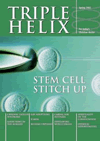This is the ecumenical version of the seminal work on healing, which in its original form stimulated so many of us in our thinking about the healing ministry.
Paradoxically, it is perhaps a shame to have lost the original foreword, which describes the influences which brought Francis to his conviction that the healing ministry is present reality.
The book has a direct approach. The challenge the Sanhedrin faced in Jesus 20 centuries ago is applied to us. Look at the evidence for His healing ministry: is it true? Should we be doing something about it? The Sanhedrin suppressed it; the common people loved it. 'You have hidden the Kingdom from the wise and learned, and revealed it unto little children.' The first chapter is a powerful, yet gentle, defence of the healing ministry, and challenge to engage, not ignore. McNutt clarifies that the need is not for either good social/medical structures and facilities or Christ's healing at an individual level: it is both these things. He touches on the power of counselling, prayer and medicine being used together, and later develops the theme further.
He then looks at all the common resistances to the healing ministry and shakes each one for truth, concluding that the good news is that God still intervenes in our lives to heal, and that he is not constrained by the lack of extraordinary saints through whom to work. He uses believers. He traces the change in perspective about healing, and concludes that God actually does want us whole.
McNutt peppers his book with apt quotations; 'the glory of God is man fully alive', 'even God cannot play on a broken violin', 'every time you meet Jesus in the Gospels, he is either healing someone, or has just come from healing someone, or is on his way to heal someone'. He is unambiguous in his declarations, but not unbalanced. Hence he accepts that death comes to us all and there is a time not to pray for healing. He accepts that there is a truth in the receptiveness of suffering, quoting Paul's affliction with blindness which opened his spiritual eyes, but he clarifies his conviction that this is the exception rather than the rule.
McNutt also covers deliverance and exorcism in a helpful and encouraging way It is quite long, and perhaps a little repetitive at times, but always interesting, always informative and well written, and as topical now as it ever has been. It seems to me to be a foundational text. All it needs is chapter summaries to focus the message more effectively...but writing one's own is good discipline!
Reviewed by:
Michael Harper
Medical Director of Burrswood Hospital, Kent































